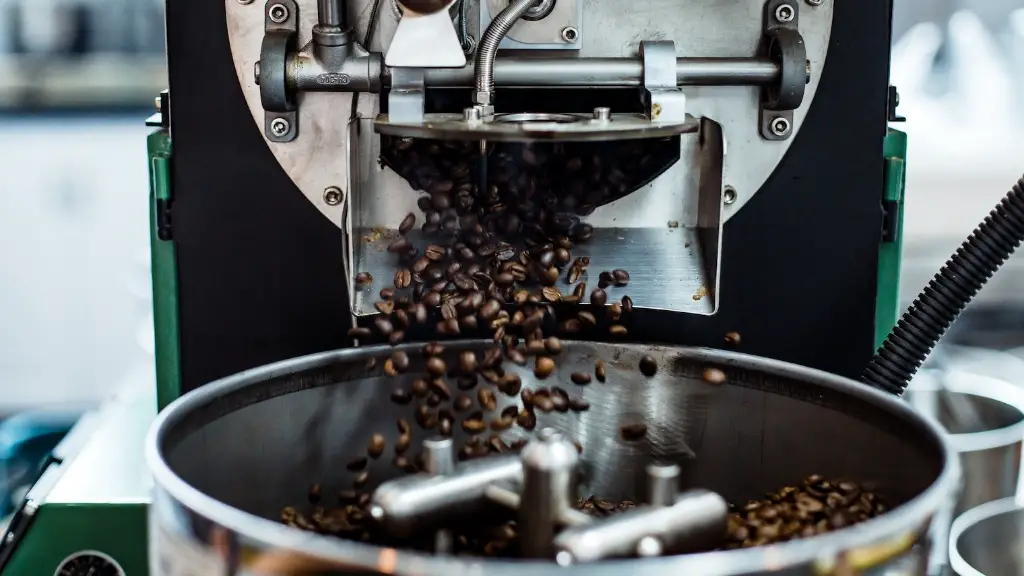Introduction
Intermittent fasting has gained incredible popularity over recent years as a way to improve health, maintain a healthy weight, and even increase lifespan. While fasting is widely known as a means of abstaining from all food, typically for a period of 12-16 hours, some have questioned whether drinking coffee during intermittent fasting can break the fast. For those who are interested in fasting, we will tackle the question of whether you can drink coffee during intermittent fasting.
What Is Intermittent Fasting?
Intermittent fasting (or IF) is an eating pattern that cycles between periods of eating and fasting. It has been used as a dietary strategy for centuries and is often used as a way to improve health and potentially increase lifespan. On fasting days people typically abstain from eating for 12-16 hours, and eat all meals within an 8-hour period, such as from noon to 8PM. There are many different variations of IF such as the 16:8 method or 5:2 diet.
What Is the Effect of Coffee on Intermittent Fasting?
The effect of coffee on fasting is quite complex and can be quite individualized, depending on the type of coffee consumed and the person drinking it. Coffee is a low-calorie beverage and contains no carbohydrates, which make it an ideal beverage for those fasting. However, the caffeine in coffee can have an impact on your hunger levels, making it harder to stick to your fasting schedule. In addition, some evidence suggests that coffee can increase cortisol levels in the body, which makes it even harder to practice intermittent fasting.
Is It Allowed to Drink Coffee During Intermittent Fasting?
The short answer is, yes, you can drink coffee during intermittent fasting. However, it is important to note that the kind of coffee you drink matters. It is best to stick to black coffee, or coffee with just 1-2 tablespoons of cream or coconut oil, as anything more than that can break your fast and defeat the purpose of intermittent fasting. Caffeinated drinks are also not recommended, as they can increase hunger and make it harder to stick to your fasting schedule.
The Benefits of Coffee During Fasting
Despite the potential drawbacks, there are still a few key benefits of drinking coffee during intermittent fasting. For those who are not used to restricting their calorie intake, a cup of black coffee can be helpful in suppressing hunger and cravings. Coffee can also reduce fatigue and boost energy levels, which can be especially beneficial during a fast. In addition, coffee can provide several health benefits and has been shown to reduce the risk of heart disease and type 2 diabetes, as well as lower inflammation in the body.
The Potential Risks Of Coffee During Fasting
While there are several benefits to drinking coffee during intermittent fasting, it is important to be mindful of the potential risks as well. The caffeine in coffee can increase cortisol levels in the body, which can have an adverse effect on your fasting schedule and make it harder to stick to it. Too much coffee can also increase anxiety, disrupt sleep, increase heart rate, and can even lead to dehydration.
The Bottom Line
In conclusion, while you can drink coffee while intermittent fasting, it is important to be mindful of the potential risks. Stick to black coffee or coffee with 1-2 tablespoons of cream or coconut oil, and be mindful of your caffeine intake. If you’re feeling anxious or jittery after drinking coffee during a fast, it may be best to opt for a cup of herbal tea instead.
Fasting for Weight Loss
Intermittent fasting has become increasingly popular for those looking to lose weight. This is because it is a relatively easy and convenient method of calorie restriction, without the need to worry about counting or tracking calories. Studies have shown that intermittent fasting can help people to lose weight and improve health markers, such as blood pressure and cholesterol.
Who Should Not Try Intermittent Fasting?
Intermittent fasting is not suitable for everyone, and should be avoided if you have a medical condition, such as diabetes or heart disease. In addition, women who are pregnant or breastfeeding should not practice intermittent fasting. It is also important to note that children under the age of 18 should not practice intermittent fasting unless specifically recommended by a doctor.
Tips For Beginners
If you are interested in trying intermittent fasting, here are a few tips to get you started. Pick a fasting schedule that works for you, and make sure to plan your meals and snacks accordingly. Make sure to stay well hydrated during the fasting period, and opt for black coffee or herbal tea instead of caffeine. Lastly, make sure to listen to your body and be aware of any hunger, fatigue, or dizziness you may be feeling.
Alternatives To Intermittent Fasting
If intermittent fasting is not suitable for you, or if you are looking for an alternative, there are many other ways to lose weight and improve your health. For example, reducing your calorie intake, increasing your exercise, or following a diet such as the Mediterranean diet are all strategies that have been proven to be effective for weight loss.
Intermittent Fasting and Mental Health
Intermittent fasting has also been linked to improved mental health, as studies have shown that it can help to reduce stress and inflammation. The reduced stress levels, combined with the potential health benefits, are why many people turn to intermittent fasting to improve their overall wellbeing. However, it is important to be mindful of potential risks, especially when it comes to mental health, and to be aware of any changes to mood or behavior while fasting.
Conclusion
In conclusion, while intermittent fasting can be helpful in maintaining a healthy weight and improving overall health, it is important to be mindful of potential risks. Always consult a qualified healthcare professional before making any changes to your diet or lifestyle, and be aware of the potential risks and benefits of coffee during intermittent fasting.



